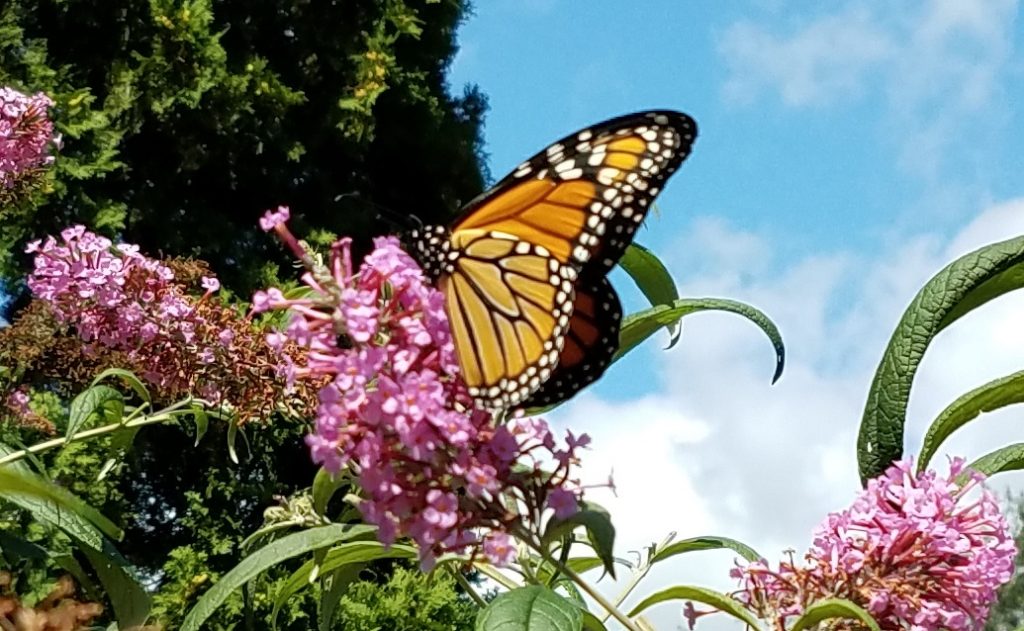There’s More Than One Reason Monarch Butterfly Populations Are Declining
The monarch butterfly population has plummeted to 20% of what it was in the early 1990s, according to a nonprofit that tracks the insects, but more than one issue is contributing to the decline.

The monarch butterfly population has plummeted to 20% of what it was in the early 1990s, according to a nonprofit that tracks the insects.
Researchers are finding there’s more than one reason.
First, monarchs need native milkweed plants for reproduction and food. They used to be common in farm fields, growing between the rows of crops such as corn and soybeans.
In the last few decades, the widespread use of an herbicide called Round-Up — generically called glyphosate — started wiping out milkweed.
“What happened is they started spraying glyphosate really, really broadly, and that would kill all the milkweed in between those row crops,” said Elise Zipkin, an associate professor and quantitative ecologist at Michigan State University.
Also, fewer monarchs are surviving the late fall migration to Mexico where they spend the winter. That’s possibly because of a parasite that attacks adults and renders them unable to fly. Additionally, there seems to be a shortage of nectar to feed on as the butterflies make their way south.
Finally, to develop, monarch eggs need temperatures to be near average, but climate change has meant more volatile temperatures.
“So we found that the size of the population was very highly linked to what those climate conditions were especially in the spring, but also in the summer too,” Zipkin said.
Conventional wisdom is that people should plant native milkweed in their backyards to make up for the losses in farm fields, but biologists are now encouraging people to support efforts to plant milkweed in natural areas that are better refuges for monarch butterflies. They also advocate supporting the agencies setting aside land for monarchs and other pollinators.
Trusted, accurate, up-to-date.
WDET strives to make our journalism accessible to everyone. As a public media institution, we maintain our journalistic integrity through independent support from readers like you. If you value WDET as your source of news, music and conversation, please make a gift today.
